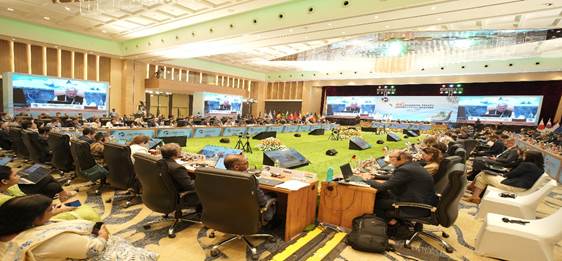In a move to regulate tourism in Antarctica, over 350 participants from nearly 40 nations are meeting in Kochi, Kerala, with India playing a pivotal role in facilitating the discussions, the Ministry of Earth Sciences said on Tuesday.
The 46th Antarctic Treaty Consultative Meeting (ATCM) and the 26th Meeting of the Committee for Environmental Protection (CEP), which started on May 20 and will run through May 30, are being organized by the National Centre for Polar and Ocean Research (NCPOR), Goa, under the Ministry of Earth Sciences and the Antarctic Treaty Secretariat.
Union Minister, Kiren Rijiju, Ministry of Earth Sciences (MoES), attended the discussions on Tuesday.
The ATCM and CEP are high-level global annual meetings conducted in accordance with the provisions of the Antarctic Treaty, a multilateral agreement of 56 Contracting Parties signed in 1959.
During these meetings, member countries of the Antarctic Treaty discuss issues pertaining to the science, policy, governance, management, preservation and protection of Antarctica.
The CEP was established under the Protocol on Environmental Protection to the Antarctic Treaty (the Madrid Protocol) in 1991. It advises the ATCM on environmental protection and conservation in Antarctica.
India has been a consultative Party to the Antarctic Treaty since 1983. With the other 28 Consultative Parties, India has a crucial role in governing Antarctica’s scientific exploration and environmental protection.
It has the right to propose and vote on decisions and resolutions made during the ATCM in matters of administration, scientific research, environmental protection, and logistical cooperation.
Further, it can establish research stations, conduct scientific programmes and logistic operations, enforce environmental regulations and access scientific data and research findings shared by Antarctic Treaty members.
With the number of tourists visiting Antarctica increasing significantly over the past few years, tourism has become a front-burner issue, making it crucial that comprehensive regulations be framed to ensure the sustainable and responsible exploration of this unique and pristine region.














